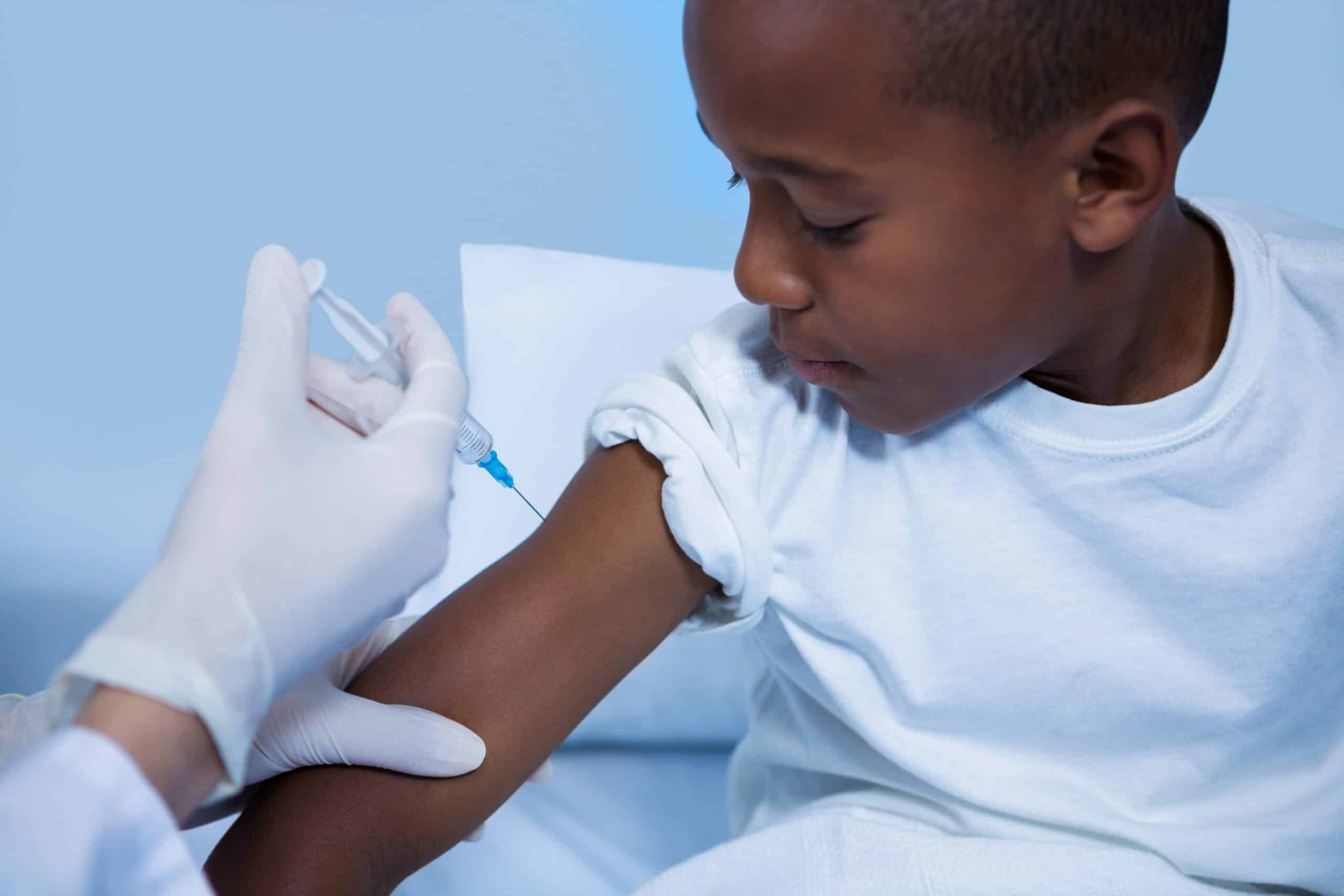Following 30 years of research and development, the first malaria vaccine was recommended by the World Health Organization (WHO) for widespread use in children living in countries with moderate to high P. falciparum malaria transmission. The vaccine, known as RTS,S/AS01, is marketed as Mosquirix and manufactured by GlaxoSmithKline (GSK). It is not only the first malaria vaccine but also the first vaccine for any parasitic disease.
Researchers estimate that the vaccine could prevent 5.3 million infections and 24,000 child deaths annually if it were used in countries with the highest rates of malaria. However, it will take time to see that benefit due to production challenges. For a pilot study conducted in Ghana, Kenya, and Malawi, researchers administered one or more vaccine doses to more than 1 million children, with a goal of delivering the required four doses per child over time. This illustrates the much larger challenge of delivering four doses each to 25 million children across more than 30 countries.
Slow Relief for a Significant Disease Burden
Although deaths attributed to malaria have declined by around 40 percent between 2000 and 2019, the disease is still a significant cause of childhood mortality in sub-Saharan Africa. The WHO estimates that more than 260,000 African children under age five die from malaria each year.
The new vaccine is designed to stimulate the production of antibodies to attack the malaria parasite. Although efficacy is somewhat limited compared to vaccines for measles or polio, researchers say it represents a valuable intervention that can be combined with medication to further reduce the disease burden. The vaccine alone, in the first year, is about 50 percent effective among children aged 5 to 17 months. Efficacy declined after four years to 36 percent for clinical cases and 32 percent for severe cases.
Lengthy Path to Approval, Manufacturing, and Distribution
Although researchers completed the Phase III trial of RTS,S/AS01 in 2014, concerns among the WHO’s advisory committee on immunization and malaria delayed approval of the vaccine. These concerns included the lack of data about the vaccine’s impact on mortality, a potential link between the vaccine and meningitis, and the feasibility of delivering a four-dose vaccine in Africa.
The result was an on-going large-scale pilot study in Ghana, Kenya, and Malawi, started in 2015. When data demonstrated the vaccine’s safety, the agency gave its approval and GSK began increasing production with the goal of delivering 4 million doses in 2023, 6 million in 2024, and 8 million in 2025. The 2026 aim of 15 million doses would be the maximum possible for the RTS,S/ASO1 manufacturing facility but only a drop in the bucket compared to the expected need for 100 to 160 million doses per year.
Gavi, the Vaccine Alliance, a public–private global health partnership with the goal of increasing access to immunization in poor countries in Geneva, Switzerland, will handle funding for vaccine distribution. As countries apply, the organization will consider factors including disease burden and capacity to distribute the vaccine.
Promising Alternatives on the Horizon
BioNTech, based in Mainz, Germany is planning to begin trials of an mRNA vaccine for malaria by the end of the year. Another vaccine, called R21 and developed at the University of Oxford, is in Phase III trials. Results of the Phase II trials suggest that R21 could be more effective than RTS,S/AS01. If approved, R21 would be produced by the Serum Institute of India in Pune, which has said it can provide more than 200 million doses annually.
In any case, further investment will be necessary to continue the fight against malaria. Having an approved vaccine is one step and, “It was a great relief for us,” said John Bawa, who oversees vaccine deployment in Africa for the international non-profit organization PATH in Accra. After having worked on the vaccine for more than a decade, he notes that if the world can eliminate malaria, “posterity would never forget us.”
Did you enjoy this blog post? Check out our other blog posts as well as related topics on our Webinar page.
QPS is a GLP- and GCP-compliant contract research organization (CRO) delivering the highest grade of discovery, preclinical and clinical drug research development services. Since 1995, it has grown from a tiny bioanalysis shop to a full-service CRO with 1,200+ employees in the U.S., Europe and Asia. Today, QPS offers expanded pharmaceutical contract R&D services with special expertise in neuropharmacology, DMPK, toxicology, bioanalysis, translational medicine and clinical development. An award-winning leader focused on bioanalytics and clinical trials, QPS is known for proven quality standards, technical expertise, a flexible approach to research, client satisfaction and turnkey laboratories and facilities. Through continual enhancements in capacities and resources, QPS stands tall in its commitment to delivering superior quality, skilled performance and trusted service to its valued customers. For more information, visit www.qps.com or email [email protected].






